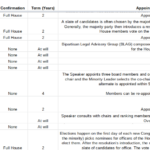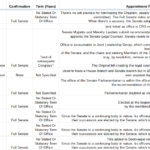
Chaplains, doctors, historians and architects are part of the unseen Legislative Branch. While most know about the House and the Senate, did you know the US Capitol Police takes up more than 10% of the Legislative Branch budget ($456 Million in FY 2019) and has 2300 employees?
This article starts a series highlighting the various offices within the Legislative Branch and the issues that should be considered – in particular the process to appoint the leaders of these various offices.
There are over 30 offices. Some are bicameral and some serve only the House or Senate. For those bicameral offices, the President is sometimes involved in appointing leaders. Is it appropriate for the Executive Branch to appoint someone who serves the Legislative Branch or is that a separation of powers concern? The House seems to have a lesser role than the Senate with bicameral offices. How do the House and Senate share power and oversight?
For all of these offices, the rank and file members of Congress are not involved in the appointment process. This further consolidates power with leadership. Are there enough resources and oversight for these offices? The recent $100 Million cost overrun for the Cannon House Office Building suggest not.
Some of these offices date back to the first Congress in 1789. Offices and the appointment process have been created piecemeal over the years. Should there be a consistent process? When Congress is considering establishing a new office (as with the recent recommendations for an advisory office for science and technology), how will the leader of that office be selected?
Congress is more than Congress and understanding the scope, budget and processes of the entire Legislative Branch is important.
We’ve published our preliminary draft of the agencies and the appointment process. We could use your help. Did we miss anything? How does this work in practice? What issues need to be discussed? You can email us at maggi@demandprogress.org. We’d love to hear from you.
— Written by Maggi Molina


